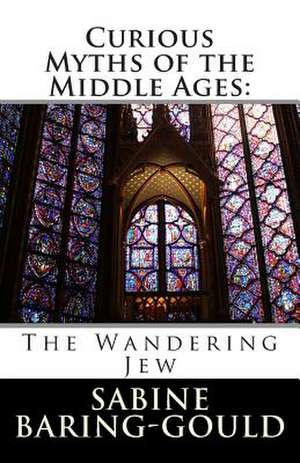Curious Myths of the Middle Ages
Autor Sabine Baring-Goulden Limba Engleză Paperback
| Toate formatele și edițiile | Preț | Express |
|---|---|---|
| Paperback (5) | 36.05 lei 3-5 săpt. | |
| e-artnow – 3 iul 2022 | 36.05 lei 3-5 săpt. | |
| CreateSpace Independent Publishing Platform – 3 dec 2015 | 46.82 lei 3-5 săpt. | |
| – | 68.10 lei 3-5 săpt. | |
| Aspekt B.V., Uitgeverij – 28 mar 2022 | 151.70 lei 3-5 săpt. | |
| COSIMO CLASSICS – 14 oct 2007 | 168.30 lei 6-8 săpt. | |
| Hardback (1) | 317.58 lei 6-8 săpt. | |
| Lulu – 30 oct 2013 | 317.58 lei 6-8 săpt. |
Preț: 50.72 lei
Nou
Puncte Express: 76
Preț estimativ în valută:
9.71€ • 9.99$ • 8.18£
9.71€ • 9.99$ • 8.18£
Carte indisponibilă temporar
Doresc să fiu notificat când acest titlu va fi disponibil:
Se trimite...
Preluare comenzi: 021 569.72.76
Specificații
ISBN-13: 9781495255014
ISBN-10: 1495255018
Pagini: 32
Dimensiuni: 129 x 198 x 2 mm
Greutate: 0.04 kg
Editura: CREATESPACE
ISBN-10: 1495255018
Pagini: 32
Dimensiuni: 129 x 198 x 2 mm
Greutate: 0.04 kg
Editura: CREATESPACE
Notă biografică
Rev. Sabine Baring-Gould (1834 - 1924) of Lew Trenchard in Devon, England, was an Anglican priest, hagiographer, antiquarian, novelist and eclectic scholar. His bibliography consists of more than 1240 publications, though this list continues to grow. His family home, the manor house of Lew Trenchard, near Okehampton, Devon, has been preserved as he had it rebuilt and is now a hotel. He is remembered particularly as a writer of hymns, the best-known being "Onward, Christian Soldiers" and "Now the Day Is Over". He also translated the carol "Gabriel's Message" from the Basque language to English.
